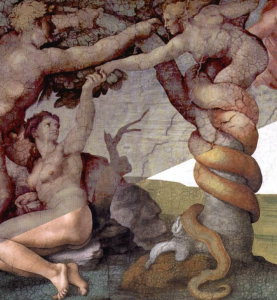« Histories of conservation »
Art History Supplement, Issue 3.2, March 2013
Submission deadline February 25, 2013
 In a recent fund raising email campaign (December 17, 2012), Michael Gallagher, conservator in charge of the Department of Painting Conservation at The Metropolitan Museum of Art, stated: “Imagine a picture coated in a thick varnish, making the artist’s original brushwork almost undetectable. Then, imagine removing that discolored surface to reveal the true painting beneath – it is painstakingly careful work, but exhilarating when the picture returns to the gallery with its integrity restored.” This could be the formula through which, according to Gallagher, general public might have the chance to approach, discover and enjoy or be thrilled by great art and old masters.
In a recent fund raising email campaign (December 17, 2012), Michael Gallagher, conservator in charge of the Department of Painting Conservation at The Metropolitan Museum of Art, stated: “Imagine a picture coated in a thick varnish, making the artist’s original brushwork almost undetectable. Then, imagine removing that discolored surface to reveal the true painting beneath – it is painstakingly careful work, but exhilarating when the picture returns to the gallery with its integrity restored.” This could be the formula through which, according to Gallagher, general public might have the chance to approach, discover and enjoy or be thrilled by great art and old masters.
The above assessment for role of conservation, considering the “original brushwork” of the “true painting” may reveal a modernist aspect of purity and uniqueness that brings along pleasure in the eye of the beholder and thus viewer. From such a starting point, any conservation theory, or better conservation practice, is both indicating a way of “contemporary” thinking about “past” using historical mechanisms in its expression and, in the same time, it is characteristic of the environment in which it was produced and of the environment it was practiced and cultivated. Humanistic, religious or strictly (micro-) political receptions and appropriations of a past suggest each time a certain way a particular culture has used, wittingly or not, material culture, being at its disposal, for a firm reason. “Reception” is regarded here as the act of decoding a past; while “appropriation” is considered here to be the product of re-encoding the same past be the same someone who practiced the decoding.
In this forthcoming issue of Art History Supplement, papers are sought dealing with conservation stories about receptions and appropriations of a certain, or not, past from a particular culture. “Histories of conservation” issue is planned to explore uses of the past, reasons for such, and primarily the why a certain reception or appropriation took place through conservation (aka restoration), from late medieval to modern times.
URL de référence : http://arthist.net/archive/4529

Leave a Reply
You must be logged in to post a comment.